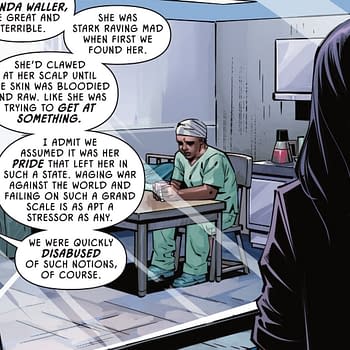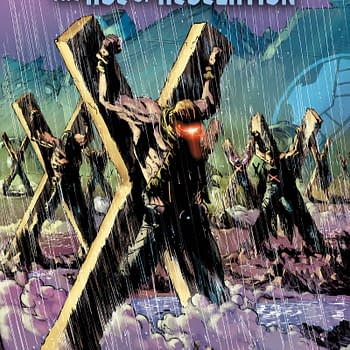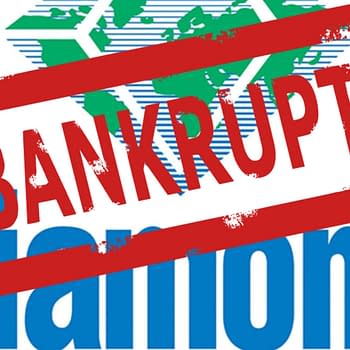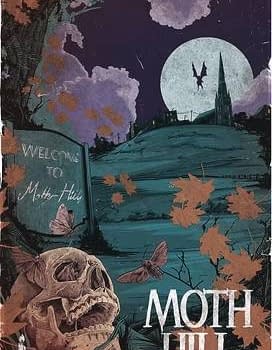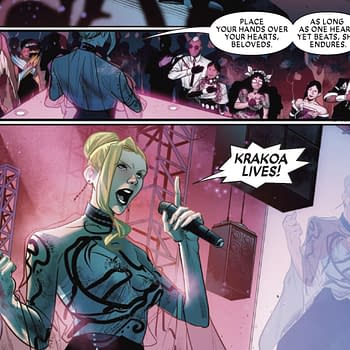Posted in: Comics, Recent Updates | Tagged: Comics, dc, dc comics, eisner awards, entertainment, gendercrunching, marvel, Marvel Comics, women in comics
Gendercrunching February 2014 – Plus Eisner Nomination Tallies
By Tim Hanley
DC continued their hot streak, topping Marvel's overall percentage of female creators for the third month in a row. We also take a look at the Eisner nominations, past and present, and their growing trend of female representation.
DC COMICS
DC saw significant growth in most of their categories this month, which led to a solid gain from their January total. In February 2014, DC Comics released 75 new books featuring 623 credited creators, 537 men and 86 women. Here are their stats:
DC went up 1.6% overall, a nice jump for just one month. Letterers and editors were the only categories that were down, falling 2% and 3.5% respectively. Everything else rose, including an increase of roughly 3% for cover artists, pencillers, inkers, and colorists, and a big 5% jump for editors. Usually when DC has bigger numbers like this, there's some sort of overstuffed one-shot or special issue involved and all of the extra female creators come from there, but this was a very run of the mill month for DC's releases, and it added up to some solid numbers.
Compared To A Year Ago: In February 2013, DC was at 12.2% overall, so they've grown 1.6% since then. So basically, their increase this month was the same as their overall annual increase. At some point, it would be nice to have these numbers stick.
MARVEL COMICS
It wasn't a great month on the creative side of things, but editorial saw a nice rise, all leading to a net gain. In February 2014, Marvel put out 66 new books featuring 583 credited creators, 513 men and 70 women. Let's look at the numbers:
Marvel rose 0.4%, not anything terribly exciting but a gain at least. Writers were the only creative category that went up, and only 0.5% at that. Cover artists fell slightly, while pencillers, inkers, and colorists were down roughly 5%. Letterers stayed at 0% for the 37th straight month. Editors didn't change much, but assistant editors were up nearly 10%. It somehow all added up to a small gain overall, but Marvel remains far from their past highs.
Compared To A Year Ago: Marvel was at 13.6% overall last February, so they've fallen 1.6% since then.
THE EISNER AWARDS
There are various comic book awards handed out throughout the year, but the Eisners are the Academy Awards of the comic book industry. And, in a fun change of pace from our often bleak stats, representation for female creators at the Eisners is actually pretty decent.
To tabulate the percentages for this year's Eisner nominations, I simply listed every single nominee named in the nominations, noted their gender, and added it all up. I counted multiple nominees multiples times instead of just once, so Matt Fraction is on the list five times instead of just once. I decided that how often someone is nominated is a relevant factor, and thus went the multiple names route. As a sidenote, if you count each name just once, the overall percentage of female creators falls but only by 0.5% so it's not a huge difference however you choose to count things.
All together, there's a definite male majority for this year's Eisner nominations, but the numbers are better than what we're used to seeing from DC and Marvel. The results were:
MALE NOMINEES: 82.1%
FEMALE NOMINEES: 17.9%
With DC at 13.8% and Marvel at 12% female creators in February, 17.9% female creators from the Eisner nominee list is considerably better. Plus, the majority of Eisner nominees are writers and artists, and those numbers average out to about 5% all together for the Big Two. We've looked at some other publishers in the past, and their writer and artist totals rarely came out much better than DC or Marvel, and almost all of them were considerably lower than 17.9%.
This year's Eisner nominee list is also a significant improvement for female creators compared to years past. I went back every other year for a decade, and charted the overall percentage of female creators nominated for Eisners. Take a look:
There's a big jump from 2012, and this year has over three times as many female nominees as the low in 2006. There wasn't a lot of change over the aughts, but things seem to really be picking up thus far in the teens.
We should also take the things we can't see on the chart into consideration. The numbers are handy, but they don't tell us where the nominees are. In past years, female nominees tended to be clustered in certain categories. Manga was a big one, as was comics journalism. The female writers and artists were often international, working outside of what we would call the mainstream North American comic book industry, while the male writers and artists tended to be weighted towards the mainstream.
In 2014, female creators were all over the place. Kelly Sue DeConnick, Fiona Staples, and Emma Rios were nominated for Image books, in a variety of categories, Faith Erin Hicks received two nominations for The Adventures of Superhero Girl, published by Dark Horse, and Jordie Bellaire was nominated for Best Coloring while working for seven different publishers, all mainstream. We saw female nominees where we usually do as well, but there were many more from various publishers interspersed through the list. All told, 30 different women received 40 Eisner Award nominations, with female representation in 22 of 30 categories.
Now, not to end on a downer, but the Hugo Award nominations also came out last week (amidst a flurry of controversy, most of it well-deserved). The Hugo Awards honor science fiction and fantasy, close cousins of comic books in the weird part of the literary family tree where all the nerds live. The 2014 Hugo Award nominees were 40.2% female creators, which makes the Eisners' 17.9% seem somewhat paltry in comparison. So yes, the Eisners are growing in female representation at a very strong rate, but there's still a lot of room for improvement yet.
To learn more about this statistics project and its methodology click here, and to see the previous stats click here. You can visit Tim at Straitened Circumstances and follow him on Twitter@timhanley01. His book Wonder Woman Unbound: The Curious History of the World's Most Famous Heroine is available now.













